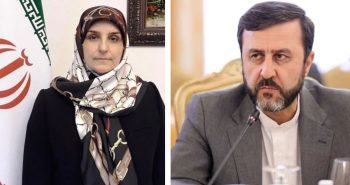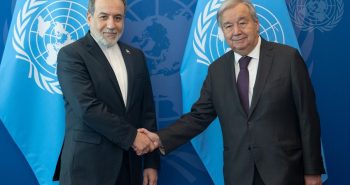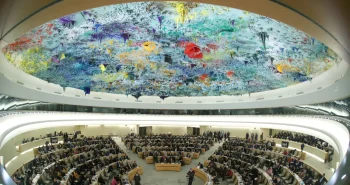| Source: Policy Watch No. 1550, Washington Institute for Near East Policy.
Targeting Human Rights Abuse in Iran: A Post-Election Strategy By Emanuele Ottolenghi On July 8, G8 summit participants issued a statement expressing “serious concern” about the Iranian government’s postelection actions; U.S. president Barack Obama characterized the situation as “appalling.” Further, both Obama and French president Nicolas Sarkozy emphasized that Tehran will face serious consequences if Iran has not begun to cooperate on its nuclear program by September. The United States and Europe, meanwhile, should focus on the regime’s latest human rights abuses, signaling to Iranian dissidents that they are not alone and that current or future sanctions are not intended to punish them for a regime that they neither elected nor support. Sanctions are a statement to Iran’s leadership that failure to compromise on outstanding issues — particularly the nuclear program — could erode the regime’s shaky internal legitimacy. Measures That Governments Can Take Governments must demonstrate to Iran’s repressive leaders that although dialogue may continue, “business as usual” will not. It is critical that Iranian dissidents know they are not alone in their struggle. Iran, where national honor and pride are highly valued, will not be indifferent to regular displays of public contempt for its leaders. The regime replaced its ambassador to Rome, for example, immediately after the latter’s failure to secure any meetings between Italian officials and Iranian president Mahmoud Ahmadinejad during the 2008 Food and Agriculture Organization Summit, which Italy hosted. The regime’s loss of face as a result of such events should not be underestimated or dismissed as “gesture politics.” When visits to Western countries by top Iranian officials are unavoidable — such as the upcoming UN General Assembly in New York — cities themselves can take high-profile actions, such as paying tribute to prominent Iranian dissidents by renaming sections of streets in front of Iranian embassies, consulates, or interest sections. (During the Reagan administration, the city of Washington, D.C., designated the block of 16th Street in front of the Soviet embassy as “Andrei Sakharov Way” in honor of the jailed dissident.) Similarly, local media campaigns can give a human face to the suffering in Iran. Here are some other examples of effective actions that governments can take in support of Iranian human rights:
If Iranian human rights abuses intensify, additional measures are worth contemplating:
Beyond Statecraft Supporting human rights activism in Iran is a mandate that should extend beyond official initiatives. The involvement of a country’s citizenry through civil-society organizations communicates to Iranian dissidents that the world is aware of their plight and is ready to take concrete action. Nongovernmental organizations and other associations could initiate, sponsor, or promote:
These kinds of nongovernmental initiatives would engage Western civil society as a whole in the struggle for Iranian human rights and would expand the Western arsenal of pressure considerably. Conclusion Despite recent events, engaging Iran may still be a worthwhile policy goal. Engagement gives the United States time to convince potential allies that all venues for compromise have been sufficiently tried. It affords the regime an opportunity to change its behavior. It communicates to Iran that the West is ready to engage the regime before it inflicts economic pain on the people, and, perhaps most important, it places the burden of failure squarely on the regime. Nevertheless, governments exercising diplomatic engagement should not be tempted to pretend that all is well in Tehran: pretense has no place in the face of repression. Dr. Emanuele Ottolenghi is director of the Brussels-based Transatlantic Institute and author of the widely praised new book “Under a Mushroom Cloud: Europe, Iran and the Bomb” (Profile Books, 2009). |





